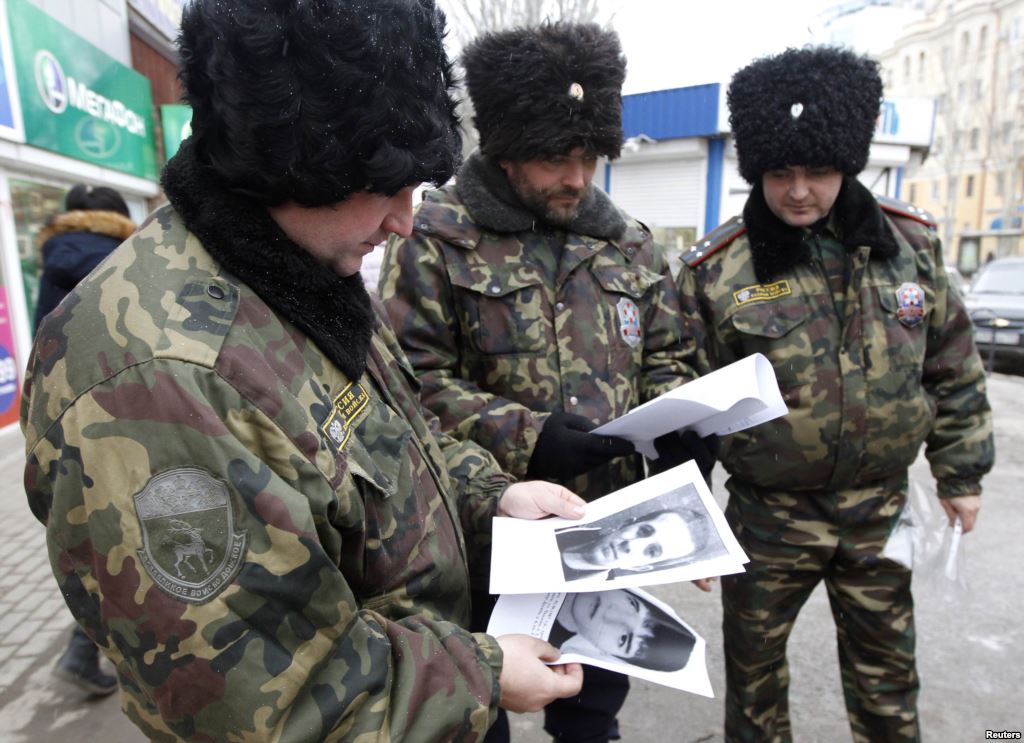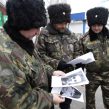
Kremlin Seeks to Use Cossacks, but Prevent Them From Becoming Too Powerful
Publication: Eurasia Daily Monitor Volume: 12 Issue: 3
By:

Russian experts say that the Cossack organizations in the North Caucasus are increasingly split and mired in conflicts with each other. The reasons usually given for the internal conflicts among the Cossacks is the government’s inability to organize them, or their own inability to organize themselves. A closer look, however, reveals that both government manipulation of the Cossack organizations and rampant corruption prevent them from developing into a potent political force.
One of the primary splits among the Cossack organizations is between so-called “registered” and “free” Cossacks. The “registered” Cossacks are on the government payroll, while the relationship between the “free” Cossacks and the government is more complicated—although they, too, often receive benefits from the government. The complexity of the situation can be seen in the North Caucasian Federal District, where four Cossack organizations exist—the Registered Terek Military Society, the Interregional Movement of Terek Cossacks “Terek Cossack Army,” the Terek Cossack Army, and the Stavropol Cossack Army of the Union of Cossacks of Russia. Several Cossack organizations from neighboring Krasnodar region also overlap with the North Caucasian Federal District. In addition, the local constituent parts of the Cossack organizations often have loyalties divided between various Cossack umbrella organizations (Kavpolit.com, December 12, 2014).
Moscow actively used Cossack organizations during the recent Russian-Chechen wars and the regional conflicts throughout the Caucasus, and is now using them in Ukraine. The registered Cossacks appear to have all the resources—including full government support—to become a strong force in the North Caucasian Federal District. Yet, the Cossacks have failed to develop into a force independent of the Russian state. While some Cossack organizations appear willing to establish the Cossacks as a separate, self-sustaining entity, others claim that there is no role for the Cossacks apart from defending the Russian state.
Many Cossacks reaped substantial material benefits from the Russian state after serving Moscow’s interests in various conflicts. Essentially, the Cossacks played the role of mercenaries who were formally not associated with official Moscow and not part of the Russian army, but still effectively carried out the military objectives of their patrons. Over time, however, the ordinary Cossacks found that the material benefits allotted by the government were concentrated in the hands of the few especially shrewd Cossack chiefs. For this reason, the ranks of the organizations propped up by the Russian state have weakened (Kavpolit.com, December 12, 2014).
The “free” Cossacks also appeal to Moscow for help and offer their services, but they try to gain greater autonomy, attempting to enter politics and sometimes challenging the central government. One of these successful Cossack leaders, Yuri Churekov, has vigorously advocated the creation of the Russian Stavropol Republic (Protestkom.ru, accessed January 7, 2015). In August 2014, Churekov announced his intention to establish a Cossack political party, Bratstvo (Brotherhood), and stated that the primary objective of the Cossacks is to establish the Cossack nation as an entity. The Cossack administrative subunits should be established in each of the republics and regions of the North Caucasus, according to Churekov’s plans. The Cossack leader, who is based in the city of Pyatigorsk (Stavropol Krai), also stated that his organization would cooperate with Putin’s movement Narodny Front (People’s Front), but expressed his dislike for the ruling party, United Russia. Churekov’s objectives are closely aligned with the Kremlin’s objectives in the North Caucasus, as the authorities in Moscow seek to diminish the autonomy of the republics as much as possible. However, Churekov also has aspirations that contradict Moscow’s interests. “We do not intend to serve [Moscow], but restore the Cossack nation and this is unacceptable for the current [Russian] government,” Churekov stated (Terskiykazak.livejournal.com, August 5, 2014).
The creation of a Cossack nation and republic would essentially fragment the Russian people and contribute to the real federalization of the Russian Federation, which has essentially become a unitary state under the rule of Russia’s strongman, Vladimir Putin. Naturally, such a development is feared by Moscow far more than any separatist aspirations of the North Caucasians, because it would be harder to suppress. The North Caucasus republics are also not interested in the rise of Cossack subunits on their territories. Since the North Caucasus region’s republican functionaries are well aware of Moscow’s support for the Cossacks, instead of banning Cossack organizations or putting other forms of pressure on them, they co-opt their leaders or organize parallel Cossack forces, or do both. The North Ossetian authorities created the so-called Alan Cossack Army, which has an estimated 12,000 members, mostly Ossetians; this organization even receives financing from Moscow (E–u.ru, accessed January 7, 2015). At the same time, North Ossetia’s republican authorities supported the unpopular Russian Cossack leader in the republic, Mikhail Inkavtsov, who remained in office despite strong opposition from the Cossacks (Osradio.ru, September 5, 2010). Cossacks exist even in predominantly Muslim Ingushetia, producing ironic questions among the Cossacks about how inclusive they can be (Kavpolit.com, December 17, 2013).
The development of Cossack organizations in the North Caucasus indicates Moscow’s willingness to use them as an imperial paramilitary force for advancing the interests of the Russian state. On the less visible side, Moscow also strives to contain the evolution of the Cossack movement from turning into an autonomous political force that could potentially challenge the authority of the central government in Moscow. Through supporting quasi-Cossack groups in the republics of the North Caucasus, Moscow is essentially paving the way for the creation of proto-armies in these republics.




